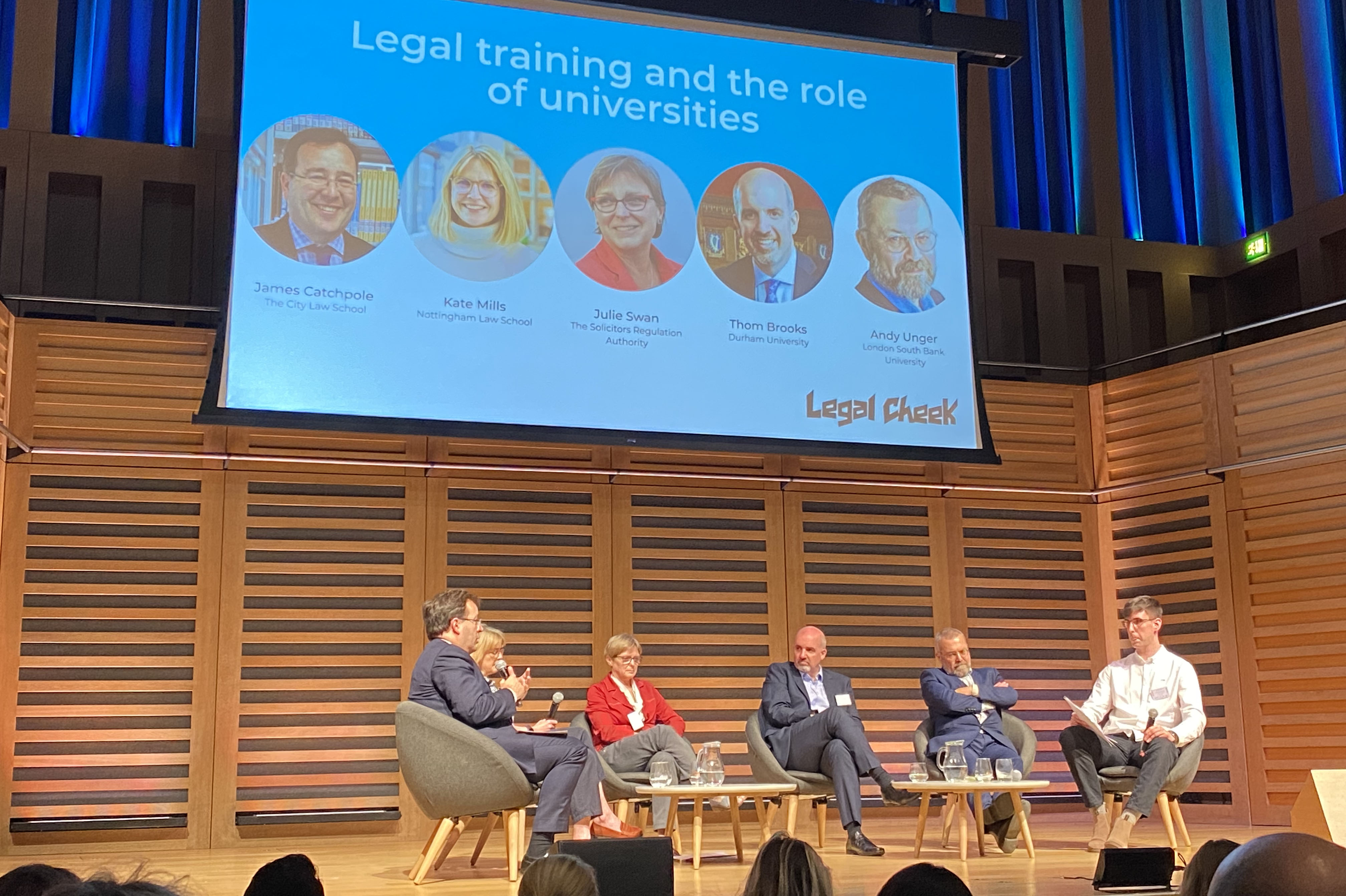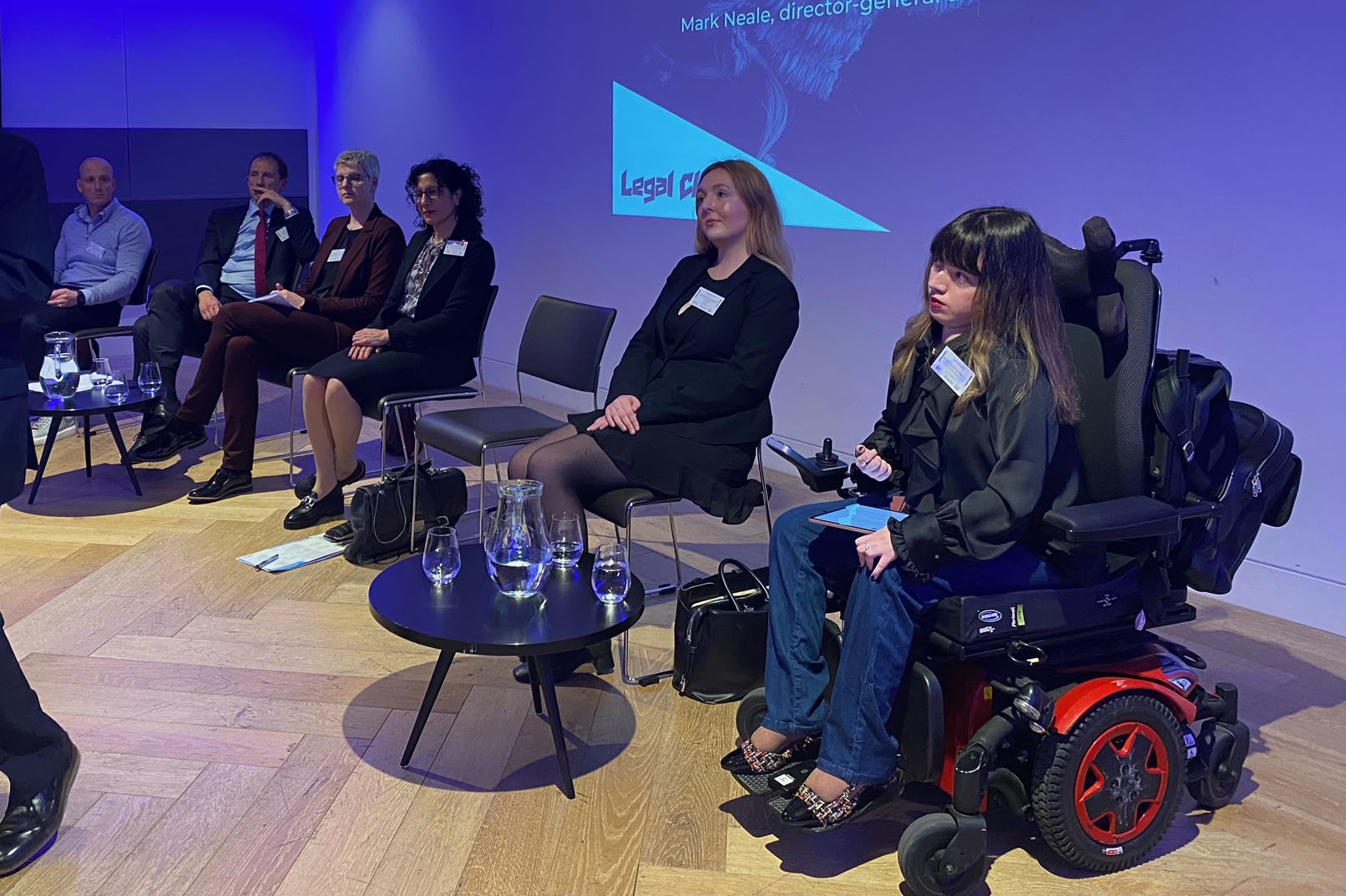Online assessment proctoring, AI challenges and the Solicitors Qualifying Examination are among several topics discussed.
By City Press Office (City Press Office), Published

LegalEdCon 2023 took place on 18th May at King’s Place, London, with 250 delegates attending. It is an annual gathering of law firms and chambers, learning and development teams, graduate recruitment teams and law academics.
Simone Start, Director of The City Law School’s Bar Vocational Studies (BVS) programme, kicked off the afternoon session, joining other panellists to talk about the future of the Bar. Simone chose to focus on the recent ban of online proctoring in the centrally set bar exams, posing the question, Artificial intelligence: Is online proctoring of assessments the future or the past?
Simone’s presentation dealt with issues that were topical and controversial, explaining how online delivery of the centrally set assessments works in practice, setting out her experience of online proctoring at City, and looking at the advantages and disadvantages from the student perspective. She also took time to consider the point of view of the assessment teams who deal with front line issues on the day.
Asking delegates to consider several questions, such as whether it is more likely that the integrity of an assessment will be compromised more easily online than with pen and paper, she referenced Ian Hislop’s Fake News: A True History, which BBC Four describes as a ‘sharp, provocative take on 200 years of fake news and its consequences – from Victorians on the moon to 21st century deepfake’. Like fake news, the audience was asked whether online delivery of assessments is simply the latest iteration requiring the usual period of adjustment and acceptance.

Simone also invited delegates to take a careful look at how different students may be affected by online proctoring, taking into consideration issues such as unpredictable home working environments, which may or may not be anticipated in advance.
Finally, delegates were asked to reflect on how the decision to ban online proctoring sits alongside the Bar Standards Board principles of accessibility, affordability, flexibility, and high standards.
Whatever happens next students can be confident that at The City Law School, they will be in safe hands because of its wealth of experience, and in delivering assessments prior to online proctoring and the Law School's knowledge about making them work.
On his panel, James Catchpole, The City Law School’s Associate Dean for Postgraduate and Professional Degree Programmes, discussed the topic of Legal Training and the Role of Universities.
James drew on his 20-year career in solicitor training. Reflecting on the Legal Practice Course, he noted that it was memorable in its initial stages but became a ‘tired product which was in need of change’.
Acknowledging that the Solicitors Qualifying Examination was not without its drawbacks, James maintained that the Law School will fully embrace this professional pathway because City has an obligation to assist students in securing their futures:
“At City, we have a student cohort drawn from diverse socio-economic backgrounds and demographics. Typically, most, if not all of our students belong to the first generation in their families to receive a university education. Working closely across all of our programmes, we seek to support students at all levels of study who desire to enter the legal profession.”
While accepting that the SQE has been a market disrupter (and early data suggests that it is starting to level the playing field for entry into the profession), James said students “may still be confused by the new routes to qualification and in any event will need to be provided with as many skills as possible to hit the ground running. They will also need to look beyond the SQE so that they can develop their careers even further. This will become even more essential when disruptive threats such as AI and legal tech are considered.”
James went further to highlighted some of strengths The City Law School’s offers to its students, which include:
- A student-centred approach where student support is key;
- The tradition of a full-service university offering pastoral and counselling support to students (particularly given the recorded increased pre-UCAS disclosures of mental health and wellbeing);
- Increased identification and awareness of neurodiversity;
- A Solicitor’s Practice Programme which is buttressed by the Law School’s award-winning pro bono offering, the City Community Legal Advice Centre (CityCLAC) and Law in Real Life;
- Employer connections (including alumni mentors) with boutique and medium-sized law firms in London.
LegalEdCon 2023 was headline-sponsored by BPP University Law School, BARBRI and The University of Law, with The College of Legal Practice, The City Law School, Nottingham Law School and LexisNexis were silver sponsors, together with partner charity The Food Chain.
